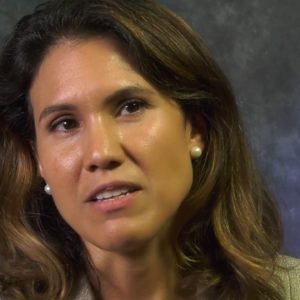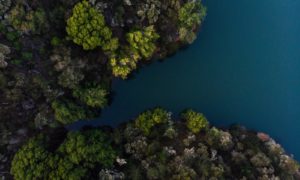Événement Virtuel
Nature-based Solutions and the Post-2020 Biodiversity Framework | Geneva Nature-based Solutions Dialogues
The Geneva Nature-based Solutions Dialogues aim to facilitate further engagement and discussion among the stakeholders in International Geneva and beyond in the lead-up to a critical year for nature and society. The dialogues are convened by the Geneva Environment Network and the International Union for Conservation of Nature (IUCN).
About the Dialogues
We are facing a triple planetary crisis – climate change, nature loss and pollution. In this context, Nature-based Solutions (NbS) are a powerful ally to address a societal and environmental challenges. As per the definition of IUCN, NbS are actions to protect, sustainably manage and restore natural or modified ecosystems that address societal challenges effectively and adaptively, simultaneously providing human well-being and biodiversity benefits.
NbS are a powerful tool to facilitate and catalyze the engagement of cross-sectoral stakeholders to join forces towards the implementation of an ambitious Post-2020 Global Biodiversity Framework (GBF) and move towards achieving the 2015 Vision of the Convention on Biological Diversity (CBD) of “Living in Harmony with Nature”. NbS also offer a pathway for synergies among multilateral environmental agreements ― including biological diversity (CBD), climate change (UNFCCC), disaster risk reduction (Sendai Framework), desertification (UNCCD) and the wider Sustainable Development Goals (SDGs) ― and for mainstreaming nature conservation into sectoral decision-making processes.
In the lead-up to a critical year for nature and society, NbS offer an opportunity to address a wide range of urgent societal challenges. The year 2021 and the major upcoming negotiations should indeed mark a turning point towards a resilient world for future generations.
Join the Geneva Environment Network and the International Union for Conservation of Nature in a one-year journey where experts from around the world and different sectors will discuss throughout the year how NbS are relevant to various debates ongoing in Geneva.
About this Session
Parties to the Convention on Biological Diversity (CBD) are currently negotiating a new Global Biodiversity Framework (GBF), which will define targets and pathways for the conservation and management of biodiversity for the next decade and beyond. The post-2020 GBF, which will be adopted at the 15th meeting of the Conference of the Parties (COP15) in Kunming, China, in October 2021, is a stepping-stone to achieve the 2050 Vision of “Living in Harmony with Nature”.
Since 2004, the CBD has recognized the important role of ecosystem approaches, defined as “strategies for the integrated management of land, water and living resources that promotes conservation and sustainable use in an equitable way” (CBD, 2004). Through voluntary guidelines, the CBD has provided further support for ecosystem-based adaptation (EbA) and ecosystem-based disaster risk reduction (Eco-DRR).
As we move toward more ambitious goals beyond 2020, the umbrella concept of Nature-based Solutions (NbS) is a powerful tool that will contribute towards the achievement of the GBF goals and targets while fostering new paths of change for our future.
Therefore, strengthening the emphasis on NbS in the GBF has the potential to bring about transformational change in society’s relationship with nature, to accelerate progress towards the Sustainable Development Goals and ensure that, by 2050, the shared vision of living in harmony with nature is fulfilled.
Sessions
- Nature-based Solutions and Health | 26 April
- Nature-based Solutions and Ecosystems Restoration | 7 June
- Decent Work Through Nature-based Solution for an Inclusive Socio-Economic Recovery | 30 August
- Nature-based Solutions and Food | 13 September
- Nature-based Solutions and Oceans | 27 September
- Nature-based Solutions for Building Resilience | 11 October
- Nature-based Solutions and Cities | 25 October
- Nature-based Solutions and Peacebuilding | 1 November
- Nature-based Solutions and Water | 22 November
- Nature-based Solutions and People | 6 December
Speakers
By order of intervention

Catalina SANTAMARIA
Special Adviser to the Executive Secretary, UN Convention on Biological Diversity

Norbert BÄRLOCHER
Head of the Rio Conventions Section, Federal Office for the Environment, Switzerland

Camila ZEPEDA LIZAMA
Director General of Global Issues at the Mexican Secretariat of Foreign Relations

Corli PRETORIUS
Deputy Director, UNEP-WCMC

Angela ANDRADE
Director of Environmental Policy at Conservation International, Chair of the IUCN Commission on Ecosystem Management

Jane SMART (moderator)
Global Director, Biodiversity Conservation Group and Global Species Programme, IUCN
Summary
Welcome and Introduction | Setting the Scene
Nature-based Solutions and Biodiversity
Jane SMART | Global Director, Biodiversity Conservation Group and Global Species Programme | IUCN
- NbS are the piece of the puzzle for ensuring sustainable, large-scale protection and restoration of
nature. It benefits BOTH people and biodiversity conservation: Conserving biodiversity can provide
adaptation benefits for people; working with people-oriented NbS can benefit biodiversity. - NbS are grounded in the Ecosystem Approach and the Global Standard for NbS (adopted in 2020) provides robust environmental and biodiversity safeguards and human rights.
- NbS guarantee fair and inclusive governance and decision-making and recognizes diversity of knowledge and perspectives relevant to three objectives of CBD.
- The IUCN has a recognized definition through a resolution adopted by State and NGO members at the WCC, 2016. From the eight criteria, the third addresses net positive impact on biodiversity and, if applied correctly, the result will always be net positive and will, therefore, contribute to the Post-2020 GBF.
Nature-based Solutions and the Post-2020 Biodiversity Framework
The Post-2020 Biodiversity Framework and Nature-based Solutions in the CBD Agenda
Catalina SANTAMARIA | Special Adviser to the Executive Secretary | UN Convention on Biological Diversity
- Two weeks ago, delegates to the CBD process concluded the first formal virtual part of negotiations under the subsidiary body meetings, a critical step leading to COP15.
- Delegates not only advanced the work of the subsidiary bodies but also produced important advice to the Co-Chairs of the Working Group on the Post-2020 Global Biodiversity Framework.
- The first draft is currently being prepared by the Co-Chairs and it is anticipated that a physical meeting will be needed to complete the work of the Working Group and the subsidiary bodies before the final version of the framework is being presented for adoption at COP15.
- NbS and ecosystems-based approaches feature prominently in the discussions around the Post-2020 Global Biodiversity Framework and are reflected in a number of draft targets such as the Zero Draft and updated Zero Draft.
- Nbs are often discussed in relation to climate change and to keep climate change below 2C and closer to 1.5C above pre-industrial levels. This is needed to prevent climate impacts from overwhelming all other actions in support of biodiversity.
- In the 5th edition of the Global Biodiversity Outlook, NbS could provide one-third of the total net emission reduction required to keep climate change close to 1.5C. NbS could also provide water filtration, flood and coastal protection, improved soil health and the conservation and sustainable use of biodiversity.
- However, there are four caveats: 1) Climate reduction cannot be solved without the stringent reduction in fossil fuels; 2) the distribution of impact must be considered and indigenous peoples and local communities must be fully involved in the implementation of ecosystem-based approaches; 3) careful assessment of synergies and trade-offs is required (tree planting is not always appropriate, especially non-native species and monoculture plantations); and, 4) climate change impacts can undermine ecosystem resilience, thus, weaken the contribution of ecosystems to both mitigation and adaptation of climate change.
- Only efforts that truly contribute to social objectives in a just manner while protecting biodiversity are counted as true NbS.
- NbS also go beyond climate change and is interconnected with sound agriculture, clean air and water, green infrastructure and urban green spaces.
- Transformation needs to be achieved in the production of goods and services, especially in food such as adapting agricultural methods that can meet global demand while imposing fewer negative impacts on the environment and reducing the pressure to convert more land to food production. Reducing food waste and promoting healthier diets are also needed.
- We must recognize the dependency of urban communities on well-functioning ecosystems and the need for spatial planning to reduce the negative impacts on biodiversity from urban expansion, roads and other infrastructure.
NbS for Accelerating Transformative Change in Mainstreaming Biodiversity and Strengthening Synergies among MEAs
Norbert BÄRLOCHER | Head of the Rio Conventions Section, Federal Office for the Environment | Switzerland
- Transformative change clearly states that we have to make sure that our consumption and production are not harmful for nature. This is easily said and everybody agrees to it but the way produce, consume, travel and live is almost always linked with a negative impact on nature.
- If governments should now stand up and say that we have to change our behavior, that we have to change our ways of producing and consuming, the public might not necessarily be positive about the change.
- Transformative change needs a lot of planning and political will to ensure that we are ready to shift to a more sustainable way of living in harmony with nature.
- Many countries wanted to focus on developing technology and not on changing behavior to achieve transformative change. In some instances it can be possible, such as capturing C02 to produce kerosene and moving towards a circular economy. In other instances, NbS are more feasible instead of technological solutions that can have a heavy impact on nature, such as building concrete dams instead of planting and expanding more mangroves to contain water sediments that deposit on land. We need to build on the knowledge of indigenous populations and local communities.
- The IUCN guidelines and standards are important in NbS.
- Mainstreaming biodiversity has become important but is still a struggle. We cannot save biodiversity simply by creating protected areas because the negative impact on biodiversity comes from different sectors and areas, which need to be addressed and integrated.
- As the economic impact of climate change is more evident, it has more prominence than preserving biodiversity, even though in the long-term, destruction of nature also has a negative impact on the economy.
- With the numerous processes on biodiversity, we need to improve agenda-setting and biodiversity priorities to encourage more countries to participate.
- We need to work together and strengthen the synergies among the MEAs that contribute to the implementation of the Global Biodiversity Framework, not solely on biodiversity processes but also on climate and other sectors as they are interlinked. It’s important to create a platform with reporting on different processes that’s transparent.
Nature-based Solutions: An Integrated Response for Achieving the 2050 Vision
Camila ZEPEDA LIZAMA | Director General of Global Issues at the Mexican Secretariat of Foreign Relations
- Mexico advocates for an essential role for cities and local authorities within the implementation of the Convention on Biological Diversity and was the first Party to sign the Edinburg Declaration. Mexico believes it is a very powerful instrument to enhance and collectively increase ambition for the Post-2020 implementation.
- Mexico seeks collaboration and capacity development among its sub-national governments, cities and local authorities, including to present additional commitments on how to strengthen environmental governance within different sectors and stakeholders.
- Mexico is also looking for innovative financial mechanisms to bring multilateral cooperation and co-finance interests to develop successful conservation and restoration projects that include nature-based solutions. From experience, it seems easier to receive funding for federal governments but it is more difficult for local authorities to access funds even though they are the ones implementing nature-based solutions. There needs to be more alignment between multilateral agencies, regional development banks and local authorities to streamline resources. In order to fulfill the Edinburg Declaration, resources are need to implement the projects.
- Mexico is a strong supporter of nature-based solutions and an ecosystems-based approach. On the Global Commission on Adaptation, Mexico organized within the framework a dialogue with indigenous people on climate change, biodiversity and desertification with a focus on nature-based solutions.
- Nature-based solutions is gaining more prominence and momentum but we need to ensure that they are integrated into public policies and that legal frameworks are aligned. Mexico has included nature-based solutions as a strong part of its NDC for the UNFCCC framework and incorporated it in its national adaption policy and contained in its general law on climate change. Mexico aims to generate specific actions.
The UN Common Approach on Biodiversity and Nature-based Solutions
Corli PRETORIUS | Deputy Director | UNEP-WCMC
- The common approach that the UN has adopted is about the mainstreaming agenda and supporting Member States to implement the CBD and other multilateral environmental agreements.
- Three highlights: 1) Reflecting on the Secretary-General’s vision and leadership by requesting a whole UN system approach to biodiversity and signaling the need for supporting integrated approaches across governments; 2) focus on the implementation at the national level but at the same time identifying key systemic levers or barriers to change; and, 3) appreciate that the integration of biodiversity and nature-based approaches also require the phasing out of economic activities that degrades nature.
- Half of the world’s global economy is highly dependent on functioning ecosystems. When these are degraded, it has enormous social impact on communities. The global ambition to implement the three pillars of sustainable development is limited by siloed approaches where the value of biodiversity and ecosystem approaches are largely unaccounted and disconnected from socio-economic priorities. We require actions across the whole of governments and societies to address nature loss and to integrate biodiversity considerations and nature-based solutions.
- It’s important to integrate all tiers of government in terms of implementation and the UN is committed to mainstream and to better coordinated efforts to facilitate the implementation of the Post-2020 Global Biodiversity Framework but also link to the 2030 Agenda and the Paris Agreement.
- Markets, economics and financial practices need to be reformed to consider biodiversity and nature-based solutions. Such reforms require metrics for governments, the private sector and society that measure progress towards sustainable development and that are supported by strengthened commitments to conserve and restore natural capital. These are dialogues that the UN can convene.
- We need to work on an approach that generates a net positive effect on nature and the socio-economic transitions are required to reset our relationship with nature. These transitions need pro-active support of green economy approaches; creating decent jobs and ecosystem resilience, including ensuring disaster risk reduction and preventing the environmental degradation that lead to pandemics.
- Food systems are associated with many of the direct drivers of biodiversity loss through land-use change, large-scale monoculture agriculture, overexploitation of fisheries, use of chemicals, food waste and loss, and generation of greenhouse gases. Bringing all these systemic challenges together is what we mean by transformation of systems.
- Socio-economic transitions also require changing societal perceptions. We depend as much on the producers as on consumers to value and conserve biodiversity. Skills for a greener future should also be a priority to accelerate the energy transition and other sectors to create resilience to the management of natural resources.
The Ecosystem Approach and Nature-based Solutions
Angela ANDRADE | Director of Environmental Policy at Conservation International | Chair of the IUCN Commission on Ecosystem Management
- The ecosystem approach is a strategy for the integrated management of land, water and living resources that promotes conservation and sustainable use in an equitable way.
- Ecosystem-based Approaches to Climate Change Adaptation EbA is the use of biodiversity and ecosystem services as part of an overall adaptation strategy to help people to adapt to the adverse effects of climate change.
- Nature-based solutions are actions to protect, sustainably manage, and restore natural or modified ecosystems, which address societal challenges effectively and adaptively, simultaneously providing human well-being and biodiversity benefits.
- The IUCN Global Standard guarantees a common understanding and interpretation across all sectors, users and geographies. It also ensures a systematic learning framework to improve and evolve applications and provides quality control in the design and execution of interventions. In addition, it helps use already existing relevant tools, approaches and methods and minimizes risks related to unsustainable use of nature to contribute effectively to sustainability. The IUCN Global Standard creates a global user community, including different sectors, and help guide implementation on the ground and contributes to a shared vision for a just and sustainable world.
Q&A
- Within the CBD negotiations, we’ve seen some pushback on the issue of nature-based solutions. The recent G7 Summit also pushed against including nature-based solutions in the communiqué. What can we do given time is limited as we head into the political negotiations for the Global Biodiversity Framework?
- Catalina SANTAMARIA: The term nature-based solutions has been controversial despite the fact that it has been adopted in the context of the climate convention. My recommendation would be when using the reference to nature-based solutions, we should also explain how the CBD has been approaching it in using the term ecosystem-based approaches and providing examples that not only address the context under climate change but also describe approaches towards the SDGs in which solutions coming from ecosystems and nature are well placed.
- Corli PRETORIUS: From the common approach, we provide institutional support and the capacity to deliver on the ground. In addition, making sure that nature-based solutions go beyond the environmental sector and make it relevant to the SDGs.
- Camila ZEPEDA LIZAMA: In every convention, a concept has been new but it doesn’t mean that it hasn’t been discussed. As there’s pushback, we need to push forward. It’s making sure that we show the benefits of nature-based solutions, with concrete examples and what we mean by the term.
- Angela ANDRADE: We can highlight the connection of nature-based solutions with biodiversity because in many cases there are limitations in applying ecosystem-based approaches without this integrated picture. Projects weren’t able to deliver, for example, on biodiversity because there was a lack of connection to other land-use activities. The IUCN NbS Global Standard provides a tool to link and integrate these aspects so we don’t fragment the responses.
- How do we implement nature-based solutions on the ground level?
- Angela ANDRADE: We expect a commitment from the policy sector making sure that nature-based solutions are adopted at the policy level. We aim to engage the private sector and work together with projects financed by multilateral cooperation. We need to engage everyone and cannot simply focus on one stakeholder.
- Will there be a global or multilingual capacity building version or efforts by IUCN and the UN?
- Corli PRETORIUS: There’s a component on global advocacy and communications outreach to mainstream biodiversity and nature-based solutions to be successful, to transition and receive political will, including articulating the benefits of nature-based solutions in different languages.
- What would it take at the national level to mainstream nature-based solutions more effectively?
- Norbert BÄRLOCHER: It remains a challenge but the cost of inaction is higher than the cost of action and nature-based solutions have to be integrated in the national policies. At the UN we need to have a common approach but also at the government level.
Conclusion
- Catalina SANTAMARIA: It is critical for the implementation of nature-based solutions to leverage broad actors across different sectors and societies, to mainstream nature-based solutions, to value diversity and to enhance and restore the functionality of ecosystems from which socio-economic activities depends on. At the same time, to reduce the loss and degradation of biodiversity and enhance human well-being. To balance the necessity of what we do between now and 2030 to live in harmony with nature by 2050.
- Norbert BÄRLOCHER: We need to understand nature and should not focus GDP solely on economics, including accepting trade that is less expensive from actors with lesser social and environmental standards.
- Camila ZEPEDA LIZAMA: We need to highlight and show all the technical work that we are doing, including the value-added benefits of nature-based solutions. These are key to ensure that the different actors that are pushing back against nature-based solutions understand that we are not green washing but that nature-based solutions contribute to tackle climate and reduce the loss of biodiversity and desertification. As financial resources are needed, we need to adopt the most cost-effective solutions.
- Corli PRETORIUS: The next decade is our last chance to transform our relationship with nature. We have now seen levels of degradation that are putting our economies and livelihoods at risk. We need to invest in more sustainable solutions and each of us can play a role.
- Angela ANDRADE: The ecosystem-based approaches and nature-based solutions are not competing but complementary to each other. NbS are a very good tool and has a strong potential to grow. We need to seek for integration, to minimize trade offs and to promote the existence of sustainable and resilient territories. We have a new standard hoping to establish implementation beyond conservation but reach out to agriculture, human health and cities.
Video
In addition to the live WebEx and Facebook transmissions, the video is available on this webpage.
Documents
Links
The update on Nature-based Solutions provides relevant information and the most recent resources, news and articles from the various organizations in international Geneva and other institutions around the world.

